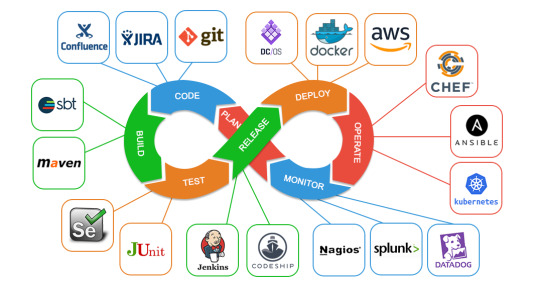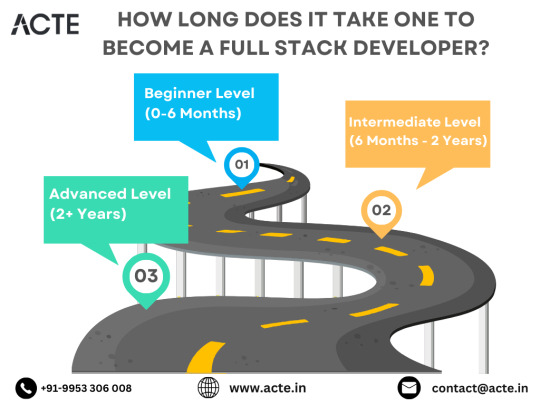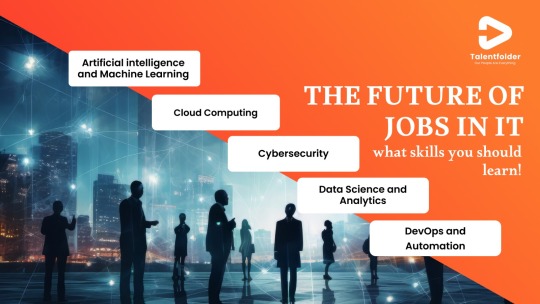#learn azure devops
Explore tagged Tumblr posts
Text

🚀 Join Us TODAY for an Exclusive Azure DevOps Demo! 🚀
💡 Ready to boost your DevOps skills? Learn about Azure DevOps in our hands-on online demo TODAY at eMexo Technologies! 🎓🔥 PLUS, we're offering an incredible 40% OFF for a limited time! 💥
📅 Don't Miss Out – The clock is ticking! ⏳ Gain real-world insights and start your journey to becoming a DevOps pro! 🛠️
👉 CLICK THE LINK https://www.emexotechnologies.com/courses/microsoft-azure-devops-training-course-az-400/ to secure your spot NOW! 💻✨
📅 25th Sept 2024 🧭 9 PM ( IST )
Format: Online Training
Contact Us For More Info:
📞 Phone: +91 9513216462
🌐 Website: https://www.emexotechnologies.com/
#azure devops#azure training#devops#cloud computing training#emexotechnologies#bangalore#electroniccity#traininginstitute#e learning#online courses#online training#tech education#tech skills#software training institute
2 notes
·
View notes
Text
Azure DevOps (ADO) Dashboards & Reports - 2023 Samples
Azure DevOps (ADO) is excellent at many things, because it has so much built-in. One of ADO’s many strengths is its customizability. But you do have to pay close attention to how you engineer ADO’s configuration, and keep a close eye on the completeness and quality of the practices and data that teams are following and contributing. Here are some samples of dashboards and reports that I built in…
0 notes
Text
Top 5 In-Demand DevOps Roles and Their Salaries in 2025

The DevOps field continues to see massive growth in 2025 as organizations across industries prioritize automation, collaboration, and scalability. Here’s a look at the top 5 in-demand DevOps roles, their responsibilities, and salary trends.
1. DevOps Engineer
Role Overview: The cornerstone of any DevOps team, DevOps Engineers manage CI/CD pipelines, ensure system automation, and streamline collaboration between development and operations teams.
Skills Required: Proficiency in Jenkins, Git, Docker, Kubernetes, and scripting languages like Python or Bash.
Salary Trends (2025):
Freshers: ₹6–8 LPA
Experienced: ₹15–20 LPA
2. Site Reliability Engineer (SRE)
Role Overview: SREs focus on maintaining system reliability and improving application performance by blending engineering and operations expertise.
Skills Required: Knowledge of monitoring tools (Prometheus, Grafana), incident management, and system architecture.
Salary Trends (2025):
Entry-Level: ₹7–10 LPA
Experienced: ₹18–25 LPA
3. Cloud Engineer
Role Overview: Cloud Engineers design, manage, and optimize cloud infrastructure, ensuring it is secure, scalable, and cost-effective.
Skills Required: Hands-on experience with AWS, Azure, or Google Cloud, along with infrastructure as code (IaC) tools like Terraform or Ansible.
Salary Trends (2025):
Beginners: ₹8–12 LPA
Senior Professionals: ₹20–30 LPA
4. Kubernetes Specialist
Role Overview: As businesses increasingly adopt containerization, Kubernetes Specialists manage container orchestration to ensure smooth deployments and scalability.
Skills Required: Deep understanding of Kubernetes, Helm, Docker, and microservices architecture.
Salary Trends (2025):
Mid-Level: ₹8–15 LPA
Senior-Level: ₹18–25 LPA
5. DevSecOps Engineer
Role Overview: DevSecOps Engineers integrate security practices within the DevOps lifecycle, ensuring robust systems from development to deployment.
Skills Required: Expertise in security tools, vulnerability assessment, and compliance frameworks.
Salary Trends (2025):
Early Career: ₹9–14 LPA
Experienced Professionals: ₹22–30 LPA
Upskill for Your Dream Role
The demand for DevOps professionals in 2025 is higher than ever. With the right skills and certifications, you can land these lucrative roles.
At Syntax Minds, we offer comprehensive DevOps training programs to equip you with the tools and expertise needed to excel. Our job-oriented courses are available both offline and online, tailored for fresh graduates and working professionals.
Visit Us: Flat No. 202, 2nd Floor, Vanijya Complex, Beside VRK Silks, KPHB, Hyderabad - 500085
Contact: 📞 9642000668, 9642000669 📧 [email protected]
Start your journey today with Syntax Minds and take your career to new heights!
#artificial intelligence#data science#deep learning#data analytics#machine learning#DevOps#Cloud#AWS#AZURE#data scientist
0 notes
Text
Azure Data Engineering Course Hyderabad
Naresh i Technologies
✍Enroll Now: https://bit.ly/3QhLDqQ
👉Attend a Free Demo On Azure Data Engineering with Data Factory by Mr. Gareth.
📅Demo on: 1st May @ 9:00 PM (IST)

Azure Data Engineering with Azure Data Factory refers to the process of designing, developing, deploying, and managing data pipelines and workflows on the Microsoft Azure cloud platform using Azure Data Factory (ADF). Azure Data Factory is a cloud-based data integration service that allows users to create, schedule, and orchestrate data pipelines to ingest, transform, and load data from various sources into Azure data storage and analytics services.
Key components and features of Azure Data Engineering with Azure Data Factory include:
Data Integration: Azure Data Factory enables seamless integration of data from diverse sources such as relational databases, cloud storage, on-premises systems, and software as a service (SaaS) applications. It provides built-in connectors for popular data sources and destinations, as well as support for custom connectors.
ETL (Extract, Transform, Load): Data engineers can use Azure Data Factory to build ETL pipelines for extracting data from source systems, applying transformations to clean, enrich, or aggregate the data, and loading it into target data stores or analytics platforms. ADF supports both code-free visual authoring and code-based development using languages like Azure Data Factory Markup Language (ARM) templates or Python.
Data Orchestration: With Azure Data Factory, users can orchestrate complex data workflows that involve multiple tasks, dependencies, and conditional logic. They can define and schedule the execution of data pipelines, monitor their progress, and handle errors and retries to ensure reliable data processing.
Integration with Azure Services: Azure Data Factory integrates seamlessly with other Azure services such as Azure Synapse Analytics (formerly Azure SQL Data Warehouse), Azure Databricks, Azure HDInsight, Azure Data Lake Storage, Azure SQL Database, and more. This integration allows users to build end-to-end data solutions that encompass data ingestion, storage, processing, and analytics.
Scalability and Performance: Azure Data Factory is designed to scale dynamically to handle large volumes of data and high-throughput workloads. It leverages Azure's infrastructure and services to provide scalable and reliable data processing capabilities, ensuring optimal performance for data engineering tasks.
Monitoring and Management: Azure Data Factory offers monitoring and management capabilities through built-in dashboards, logs, and alerts. Users can track the execution of data pipelines, monitor data quality, troubleshoot issues, and optimize performance using diagnostic tools and telemetry data.
Naresh i Technologies
#Microsoftazure#azuredataengineer#microsoft#azure#azureadmin#Online#training#Course#education#learning#software#students#dataengineer#datascience#datascientist#dataengineering#dataanalytics#dataanalysis#devops#deeplearning#bigdataanalytics#datasciencetraining#nareshit
0 notes
Text

Best AWS Online and Offline Training Institute in Pune
Why Choose Us: With expert instructors, hands-on projects, and real-world scenarios, our AWS course is designed to elevate your skills and propel your career forward. Whether you're a beginner or a seasoned pro, join us to unleash the full potential of AWS!
Ready to soar to new heights? Enroll now and embark on your AWS journey with confidence!
#AWS#CloudComputing#LearnWithUs#aws#education#cloud#traininginstitue#join#learning#landscape#network#cloudcomputing#azure#devops#technology#python#amazonwebservices#linux#amazon#awscloud#cybersecurity#coding#googlecloud#developer#kubernetes#bigdata#datascience#microsoft#machinelearning#software
0 notes
Text
🔴 Challenge name: Microsoft Cloud Skills Challenge
🔴 Focus: Azure Developer
🔴 Features:
⭕ Badges
⭕ Trophy 🏆🏆🏆
⭕ Certificates
⭕ XP points
🔴Free of cost
🔴 The challenge starts on March 10, 2024.
🔴 Duration: 1 month
🔴 Registration Link: https://learn.microsoft.com/training/challenges?id=916398e3-a748-4cf7-ab28-fb24d7423b7c&WT.mc_id=cloudskillschallenge_916398e3-a748-4cf7-ab28-fb24d7423b7c&wt.mc_id=studentamb_292236

#microsoft learn#azure dev#microsoft#azure deve#microsoft azure#azure devops#web developers#mobile app development#software development#azure
1 note
·
View note
Text
Certified DevOps at H2K Infosys
In today's fast-paced and ever-evolving world of software development, staying competitive and relevant requires a keen understanding of cutting-edge technologies and methodologies. DevOps, a combination of development and operations practices, has emerged as a transformative force in the IT industry. To harness the full potential of DevOps, many professionals seek certification. H2K Infosys, a reputable IT training provider, offers Certified DevOps Course programs that empower individuals and organizations to thrive in the modern software landscape.
The Evolution of DevOps
DevOps is not just a buzzword; it's a cultural shift that has significantly changed the way organizations develop, deliver, and maintain software. It emphasizes collaboration between development and IT operations teams to automate and streamline the software delivery process. By bridging the gap between these traditionally siloed areas, DevOps fosters a culture of continuous integration, continuous delivery (CI/CD), and rapid response to changing requirements.
H2K Infosys recognizes the importance of DevOps in today's technology landscape and offers certified training programs that equip professionals with the knowledge and skills to implement DevOps practices effectively.
The Certified DevOps Advantage
Certified DevOps training at H2K Infosys offers numerous advantages, both for individuals and organizations:

1. Skill Development
Certified DevOps training programs are designed to provide a comprehensive understanding of DevOps principles and practices. Participants learn about automation tools, version control, continuous integration, continuous delivery, containerization, and orchestration. These skills are highly sought after by companies looking to streamline their development and operations processes.
2. Career Opportunities
DevOps professionals are in high demand across various industries. By obtaining a certified DevOps qualification from H2K Infosys, individuals open doors to exciting career opportunities. Whether you're a developer, system administrator, or quality assurance professional, DevOps certification can enhance your career prospects.
3. Increased Efficiency
For organizations, implementing DevOps practices leads to increased efficiency and reduced time-to-market. Certified DevOps professionals are well-equipped to automate repetitive tasks, manage infrastructure as code, and foster collaboration between teams. This results in faster and more reliable software delivery.
4. Competitive Advantage
In today's competitive market, companies that adopt DevOps practices gain a significant advantage. They can respond to market changes and customer demands faster, ensuring they remain relevant and profitable. With certified DevOps professionals, businesses can achieve this competitive edge.
youtube
H2K Infosys: A Trusted Source for Certified DevOps Training
H2K Infosys stands out as a trusted provider of certified DevOps training. Their programs are designed by industry experts with a wealth of real-world experience. Here are some key features of their offerings:
1. Comprehensive Curriculum
H2K Infosys offers a comprehensive curriculum that covers all aspects of DevOps, from the fundamentals to advanced concepts. This ensures that participants have a well-rounded understanding of DevOps practices.
2. Hands-on Experience
Practical experience is vital in DevOps. H2K Infosys integrates hands-on labs and real-world projects into their training programs. This practical approach enables participants to apply what they've learned in a realistic setting.
3. Industry-Recognized Certification
Upon successful completion of the program, participants receive industry-recognized DevOps certification. This certification is a valuable asset when seeking employment or career advancement.
4. Flexible Learning Options
H2K Infosys offers flexible learning options, including in-person and online classes, to accommodate a wide range of schedules and preferences.
In conclusion, certified DevOps training at H2K Infosys empowers both individuals and organizations to thrive in the dynamic world of software development. By offering a comprehensive curriculum, hands-on experience, industry-recognized certification, and flexible learning options, H2K Infosys has established itself as a leading provider of DevOps education. Embracing DevOps through certification is a strategic move towards success in today's technology-driven world.
Tags: H2KInfosys, Devops certification H2K Infosys, Best DevOps in GA USA, worldwide top rating AWS DevOps Certification | H2K Infosys, devops certification, aws devops certification, azure devops certification, devops training, devops training near me, devops tutorial,devops certification training course
#awsdevopscertification #devopscertification #azuredevopscertification, #h2kinfosys,
#ClusterComputing, #RealTimeProcessing, #MachineLearning, #AI, #DataScience, #CloudComputing,#BigDataAnalytics, #DataEngineering
Contact: +1-770-777-1269
Mail: [email protected]
Location: Atlanta, GA - USA, 5450 McGinnis Village Place, # 103 Alpharetta, GA 30005, USA.
Facebook: https://www.facebook.com/H2KInfosysLLC
Instagram: https://www.instagram.com/h2kinfosysllc/
Youtube: https://www.youtube.com/watch?v=fgOgOCT_6L4
Visit: https://www.h2kinfosys.com/courses/devops-online-training-course/
DevOps Course: bit.ly/45vT1nB
#onlinetraining#online learning#online course#learning#courses#education#h2kinfosys#software#devops#development#azuredeveloper#microsoft azure#awsdeveloper#aws#Youtube
0 notes
Text
How Python Powers Scalable and Cost-Effective Cloud Solutions

Explore the role of Python in developing scalable and cost-effective cloud solutions. This guide covers Python's advantages in cloud computing, addresses potential challenges, and highlights real-world applications, providing insights into leveraging Python for efficient cloud development.
Introduction
In today's rapidly evolving digital landscape, businesses are increasingly leveraging cloud computing to enhance scalability, optimize costs, and drive innovation. Among the myriad of programming languages available, Python has emerged as a preferred choice for developing robust cloud solutions. Its simplicity, versatility, and extensive library support make it an ideal candidate for cloud-based applications.
In this comprehensive guide, we will delve into how Python empowers scalable and cost-effective cloud solutions, explore its advantages, address potential challenges, and highlight real-world applications.
Why Python is the Preferred Choice for Cloud Computing?
Python's popularity in cloud computing is driven by several factors, making it the preferred language for developing and managing cloud solutions. Here are some key reasons why Python stands out:
Simplicity and Readability: Python's clean and straightforward syntax allows developers to write and maintain code efficiently, reducing development time and costs.
Extensive Library Support: Python offers a rich set of libraries and frameworks like Django, Flask, and FastAPI for building cloud applications.
Seamless Integration with Cloud Services: Python is well-supported across major cloud platforms like AWS, Azure, and Google Cloud.
Automation and DevOps Friendly: Python supports infrastructure automation with tools like Ansible, Terraform, and Boto3.
Strong Community and Enterprise Adoption: Python has a massive global community that continuously improves and innovates cloud-related solutions.
How Python Enables Scalable Cloud Solutions?
Scalability is a critical factor in cloud computing, and Python provides multiple ways to achieve it:
1. Automation of Cloud Infrastructure
Python's compatibility with cloud service provider SDKs, such as AWS Boto3, Azure SDK for Python, and Google Cloud Client Library, enables developers to automate the provisioning and management of cloud resources efficiently.
2. Containerization and Orchestration
Python integrates seamlessly with Docker and Kubernetes, enabling businesses to deploy scalable containerized applications efficiently.
3. Cloud-Native Development
Frameworks like Flask, Django, and FastAPI support microservices architecture, allowing businesses to develop lightweight, scalable cloud applications.
4. Serverless Computing
Python's support for serverless platforms, including AWS Lambda, Azure Functions, and Google Cloud Functions, allows developers to build applications that automatically scale in response to demand, optimizing resource utilization and cost.
5. AI and Big Data Scalability
Python’s dominance in AI and data science makes it an ideal choice for cloud-based AI/ML services like AWS SageMaker, Google AI, and Azure Machine Learning.
Looking for expert Python developers to build scalable cloud solutions? Hire Python Developers now!
Advantages of Using Python for Cloud Computing
Cost Efficiency: Python’s compatibility with serverless computing and auto-scaling strategies minimizes cloud costs.
Faster Development: Python’s simplicity accelerates cloud application development, reducing time-to-market.
Cross-Platform Compatibility: Python runs seamlessly across different cloud platforms.
Security and Reliability: Python-based security tools help in encryption, authentication, and cloud monitoring.
Strong Community Support: Python developers worldwide contribute to continuous improvements, making it future-proof.
Challenges and Considerations
While Python offers many benefits, there are some challenges to consider:
Performance Limitations: Python is an interpreted language, which may not be as fast as compiled languages like Java or C++.
Memory Consumption: Python applications might require optimization to handle large-scale cloud workloads efficiently.
Learning Curve for Beginners: Though Python is simple, mastering cloud-specific frameworks requires time and expertise.
Python Libraries and Tools for Cloud Computing
Python’s ecosystem includes powerful libraries and tools tailored for cloud computing, such as:
Boto3: AWS SDK for Python, used for cloud automation.
Google Cloud Client Library: Helps interact with Google Cloud services.
Azure SDK for Python: Enables seamless integration with Microsoft Azure.
Apache Libcloud: Provides a unified interface for multiple cloud providers.
PyCaret: Simplifies machine learning deployment in cloud environments.
Real-World Applications of Python in Cloud Computing
1. Netflix - Scalable Streaming with Python
Netflix extensively uses Python for automation, data analysis, and managing cloud infrastructure, enabling seamless content delivery to millions of users.
2. Spotify - Cloud-Based Music Streaming
Spotify leverages Python for big data processing, recommendation algorithms, and cloud automation, ensuring high availability and scalability.
3. Reddit - Handling Massive Traffic
Reddit uses Python and AWS cloud solutions to manage heavy traffic while optimizing server costs efficiently.
Future of Python in Cloud Computing
The future of Python in cloud computing looks promising with emerging trends such as:
AI-Driven Cloud Automation: Python-powered AI and machine learning will drive intelligent cloud automation.
Edge Computing: Python will play a crucial role in processing data at the edge for IoT and real-time applications.
Hybrid and Multi-Cloud Strategies: Python’s flexibility will enable seamless integration across multiple cloud platforms.
Increased Adoption of Serverless Computing: More enterprises will adopt Python for cost-effective serverless applications.
Conclusion
Python's simplicity, versatility, and robust ecosystem make it a powerful tool for developing scalable and cost-effective cloud solutions. By leveraging Python's capabilities, businesses can enhance their cloud applications' performance, flexibility, and efficiency.
Ready to harness the power of Python for your cloud solutions? Explore our Python Development Services to discover how we can assist you in building scalable and efficient cloud applications.
FAQs
1. Why is Python used in cloud computing?
Python is widely used in cloud computing due to its simplicity, extensive libraries, and seamless integration with cloud platforms like AWS, Google Cloud, and Azure.
2. Is Python good for serverless computing?
Yes! Python works efficiently in serverless environments like AWS Lambda, Azure Functions, and Google Cloud Functions, making it an ideal choice for cost-effective, auto-scaling applications.
3. Which companies use Python for cloud solutions?
Major companies like Netflix, Spotify, Dropbox, and Reddit use Python for cloud automation, AI, and scalable infrastructure management.
4. How does Python help with cloud security?
Python offers robust security libraries like PyCryptodome and OpenSSL, enabling encryption, authentication, and cloud monitoring for secure cloud applications.
5. Can Python handle big data in the cloud?
Yes! Python supports big data processing with tools like Apache Spark, Pandas, and NumPy, making it suitable for data-driven cloud applications.
#Python development company#Python in Cloud Computing#Hire Python Developers#Python for Multi-Cloud Environments
2 notes
·
View notes
Text

Master Multi Cloud DevOps with Kodestree – Best Course in Bangalore for 2025
Discover the ultimate Multi Cloud DevOps Course in Bangalore offered by Kodestree, a leading training institute known for its hands-on, job-ready programs. This image highlights our dynamic learning environment where students work with top cloud platforms—AWS, Azure, and Google Cloud—in a real-world DevOps pipeline. Located at the heart of Bangalore’s tech hub, Kodestree provides expert-led training, certification support, and career guidance. Whether you're aiming for a DevOps Certification, want to Learn Azure DevOps, or are seeking the Best IT Courses in Bangalore, this course has it all.
📍 Enroll now to advance your cloud career with Bangalore’s trusted DevOps Training Institute – Kodestree.
#Multi Cloud DevOps Course in Bangalore#Kodestree#DevOps Training Institute#Learn Azure DevOps#Best IT Courses in Bangalore#DevOps Certification
0 notes
Text
Exploring the Azure Technology Stack: A Solution Architect’s Journey
Kavin
As a solution architect, my career revolves around solving complex problems and designing systems that are scalable, secure, and efficient. The rise of cloud computing has transformed the way we think about technology, and Microsoft Azure has been at the forefront of this evolution. With its diverse and powerful technology stack, Azure offers endless possibilities for businesses and developers alike. My journey with Azure began with Microsoft Azure training online, which not only deepened my understanding of cloud concepts but also helped me unlock the potential of Azure’s ecosystem.
In this blog, I will share my experience working with a specific Azure technology stack that has proven to be transformative in various projects. This stack primarily focuses on serverless computing, container orchestration, DevOps integration, and globally distributed data management. Let’s dive into how these components come together to create robust solutions for modern business challenges.

Understanding the Azure Ecosystem
Azure’s ecosystem is vast, encompassing services that cater to infrastructure, application development, analytics, machine learning, and more. For this blog, I will focus on a specific stack that includes:
Azure Functions for serverless computing.
Azure Kubernetes Service (AKS) for container orchestration.
Azure DevOps for streamlined development and deployment.
Azure Cosmos DB for globally distributed, scalable data storage.
Each of these services has unique strengths, and when used together, they form a powerful foundation for building modern, cloud-native applications.
1. Azure Functions: Embracing Serverless Architecture
Serverless computing has redefined how we build and deploy applications. With Azure Functions, developers can focus on writing code without worrying about managing infrastructure. Azure Functions supports multiple programming languages and offers seamless integration with other Azure services.
Real-World Application
In one of my projects, we needed to process real-time data from IoT devices deployed across multiple locations. Azure Functions was the perfect choice for this task. By integrating Azure Functions with Azure Event Hubs, we were able to create an event-driven architecture that processed millions of events daily. The serverless nature of Azure Functions allowed us to scale dynamically based on workload, ensuring cost-efficiency and high performance.
Key Benefits:
Auto-scaling: Automatically adjusts to handle workload variations.
Cost-effective: Pay only for the resources consumed during function execution.
Integration-ready: Easily connects with services like Logic Apps, Event Grid, and API Management.
2. Azure Kubernetes Service (AKS): The Power of Containers
Containers have become the backbone of modern application development, and Azure Kubernetes Service (AKS) simplifies container orchestration. AKS provides a managed Kubernetes environment, making it easier to deploy, manage, and scale containerized applications.
Real-World Application
In a project for a healthcare client, we built a microservices architecture using AKS. Each service—such as patient records, appointment scheduling, and billing—was containerized and deployed on AKS. This approach provided several advantages:
Isolation: Each service operated independently, improving fault tolerance.
Scalability: AKS scaled specific services based on demand, optimizing resource usage.
Observability: Using Azure Monitor, we gained deep insights into application performance and quickly resolved issues.
The integration of AKS with Azure DevOps further streamlined our CI/CD pipelines, enabling rapid deployment and updates without downtime.
Key Benefits:
Managed Kubernetes: Reduces operational overhead with automated updates and patching.
Multi-region support: Enables global application deployments.
Built-in security: Integrates with Azure Active Directory and offers role-based access control (RBAC).
3. Azure DevOps: Streamlining Development Workflows
Azure DevOps is an all-in-one platform for managing development workflows, from planning to deployment. It includes tools like Azure Repos, Azure Pipelines, and Azure Artifacts, which support collaboration and automation.
Real-World Application
For an e-commerce client, we used Azure DevOps to establish an efficient CI/CD pipeline. The project involved multiple teams working on front-end, back-end, and database components. Azure DevOps provided:
Version control: Using Azure Repos for centralized code management.
Automated pipelines: Azure Pipelines for building, testing, and deploying code.
Artifact management: Storing dependencies in Azure Artifacts for seamless integration.
The result? Deployment cycles that previously took weeks were reduced to just a few hours, enabling faster time-to-market and improved customer satisfaction.
Key Benefits:
End-to-end integration: Unifies tools for seamless development and deployment.
Scalability: Supports projects of all sizes, from startups to enterprises.
Collaboration: Facilitates team communication with built-in dashboards and tracking.

4. Azure Cosmos DB: Global Data at Scale
Azure Cosmos DB is a globally distributed, multi-model database service designed for mission-critical applications. It guarantees low latency, high availability, and scalability, making it ideal for applications requiring real-time data access across multiple regions.
Real-World Application
In a project for a financial services company, we used Azure Cosmos DB to manage transaction data across multiple continents. The database’s multi-region replication ensure data consistency and availability, even during regional outages. Additionally, Cosmos DB’s support for multiple APIs (SQL, MongoDB, Cassandra, etc.) allowed us to integrate seamlessly with existing systems.
Key Benefits:
Global distribution: Data is replicated across regions with minimal latency.
Flexibility: Supports various data models, including key-value, document, and graph.
SLAs: Offers industry-leading SLAs for availability, throughput, and latency.
Building a Cohesive Solution
Combining these Azure services creates a technology stack that is flexible, scalable, and efficient. Here’s how they work together in a hypothetical solution:
Data Ingestion: IoT devices send data to Azure Event Hubs.
Processing: Azure Functions processes the data in real-time.
Storage: Processed data is stored in Azure Cosmos DB for global access.
Application Logic: Containerized microservices run on AKS, providing APIs for accessing and manipulating data.
Deployment: Azure DevOps manages the CI/CD pipeline, ensuring seamless updates to the application.
This architecture demonstrates how Azure’s technology stack can address modern business challenges while maintaining high performance and reliability.
Final Thoughts
My journey with Azure has been both rewarding and transformative. The training I received at ACTE Institute provided me with a strong foundation to explore Azure’s capabilities and apply them effectively in real-world scenarios. For those new to cloud computing, I recommend starting with a solid training program that offers hands-on experience and practical insights.
As the demand for cloud professionals continues to grow, specializing in Azure’s technology stack can open doors to exciting opportunities. If you’re based in Hyderabad or prefer online learning, consider enrolling in Microsoft Azure training in Hyderabad to kickstart your journey.
Azure’s ecosystem is continuously evolving, offering new tools and features to address emerging challenges. By staying committed to learning and experimenting, we can harness the full potential of this powerful platform and drive innovation in every project we undertake.
#cybersecurity#database#marketingstrategy#digitalmarketing#adtech#artificialintelligence#machinelearning#ai
2 notes
·
View notes
Text
Top 10 In- Demand Tech Jobs in 2025

Technology is growing faster than ever, and so is the need for skilled professionals in the field. From artificial intelligence to cloud computing, businesses are looking for experts who can keep up with the latest advancements. These tech jobs not only pay well but also offer great career growth and exciting challenges.
In this blog, we’ll look at the top 10 tech jobs that are in high demand today. Whether you’re starting your career or thinking of learning new skills, these jobs can help you plan a bright future in the tech world.
1. AI and Machine Learning Specialists
Artificial Intelligence (AI) and Machine Learning are changing the game by helping machines learn and improve on their own without needing step-by-step instructions. They’re being used in many areas, like chatbots, spotting fraud, and predicting trends.
Key Skills: Python, TensorFlow, PyTorch, data analysis, deep learning, and natural language processing (NLP).
Industries Hiring: Healthcare, finance, retail, and manufacturing.
Career Tip: Keep up with AI and machine learning by working on projects and getting an AI certification. Joining AI hackathons helps you learn and meet others in the field.
2. Data Scientists
Data scientists work with large sets of data to find patterns, trends, and useful insights that help businesses make smart decisions. They play a key role in everything from personalized marketing to predicting health outcomes.
Key Skills: Data visualization, statistical analysis, R, Python, SQL, and data mining.
Industries Hiring: E-commerce, telecommunications, and pharmaceuticals.
Career Tip: Work with real-world data and build a strong portfolio to showcase your skills. Earning certifications in data science tools can help you stand out.
3. Cloud Computing Engineers: These professionals create and manage cloud systems that allow businesses to store data and run apps without needing physical servers, making operations more efficient.
Key Skills: AWS, Azure, Google Cloud Platform (GCP), DevOps, and containerization (Docker, Kubernetes).
Industries Hiring: IT services, startups, and enterprises undergoing digital transformation.
Career Tip: Get certified in cloud platforms like AWS (e.g., AWS Certified Solutions Architect).
4. Cybersecurity Experts
Cybersecurity professionals protect companies from data breaches, malware, and other online threats. As remote work grows, keeping digital information safe is more crucial than ever.
Key Skills: Ethical hacking, penetration testing, risk management, and cybersecurity tools.
Industries Hiring: Banking, IT, and government agencies.
Career Tip: Stay updated on new cybersecurity threats and trends. Certifications like CEH (Certified Ethical Hacker) or CISSP (Certified Information Systems Security Professional) can help you advance in your career.
5. Full-Stack Developers
Full-stack developers are skilled programmers who can work on both the front-end (what users see) and the back-end (server and database) of web applications.
Key Skills: JavaScript, React, Node.js, HTML/CSS, and APIs.
Industries Hiring: Tech startups, e-commerce, and digital media.
Career Tip: Create a strong GitHub profile with projects that highlight your full-stack skills. Learn popular frameworks like React Native to expand into mobile app development.
6. DevOps Engineers
DevOps engineers help make software faster and more reliable by connecting development and operations teams. They streamline the process for quicker deployments.
Key Skills: CI/CD pipelines, automation tools, scripting, and system administration.
Industries Hiring: SaaS companies, cloud service providers, and enterprise IT.
Career Tip: Earn key tools like Jenkins, Ansible, and Kubernetes, and develop scripting skills in languages like Bash or Python. Earning a DevOps certification is a plus and can enhance your expertise in the field.
7. Blockchain Developers
They build secure, transparent, and unchangeable systems. Blockchain is not just for cryptocurrencies; it’s also used in tracking supply chains, managing healthcare records, and even in voting systems.
Key Skills: Solidity, Ethereum, smart contracts, cryptography, and DApp development.
Industries Hiring: Fintech, logistics, and healthcare.
Career Tip: Create and share your own blockchain projects to show your skills. Joining blockchain communities can help you learn more and connect with others in the field.
8. Robotics Engineers
Robotics engineers design, build, and program robots to do tasks faster or safer than humans. Their work is especially important in industries like manufacturing and healthcare.
Key Skills: Programming (C++, Python), robotics process automation (RPA), and mechanical engineering.
Industries Hiring: Automotive, healthcare, and logistics.
Career Tip: Stay updated on new trends like self-driving cars and AI in robotics.
9. Internet of Things (IoT) Specialists
IoT specialists work on systems that connect devices to the internet, allowing them to communicate and be controlled easily. This is crucial for creating smart cities, homes, and industries.
Key Skills: Embedded systems, wireless communication protocols, data analytics, and IoT platforms.
Industries Hiring: Consumer electronics, automotive, and smart city projects.
Career Tip: Create IoT prototypes and learn to use platforms like AWS IoT or Microsoft Azure IoT. Stay updated on 5G technology and edge computing trends.
10. Product Managers
Product managers oversee the development of products, from idea to launch, making sure they are both technically possible and meet market demands. They connect technical teams with business stakeholders.
Key Skills: Agile methodologies, market research, UX design, and project management.
Industries Hiring: Software development, e-commerce, and SaaS companies.
Career Tip: Work on improving your communication and leadership skills. Getting certifications like PMP (Project Management Professional) or CSPO (Certified Scrum Product Owner) can help you advance.
Importance of Upskilling in the Tech Industry
Stay Up-to-Date: Technology changes fast, and learning new skills helps you keep up with the latest trends and tools.
Grow in Your Career: By learning new skills, you open doors to better job opportunities and promotions.
Earn a Higher Salary: The more skills you have, the more valuable you are to employers, which can lead to higher-paying jobs.
Feel More Confident: Learning new things makes you feel more prepared and ready to take on tougher tasks.
Adapt to Changes: Technology keeps evolving, and upskilling helps you stay flexible and ready for any new changes in the industry.
Top Companies Hiring for These Roles
Global Tech Giants: Google, Microsoft, Amazon, and IBM.
Startups: Fintech, health tech, and AI-based startups are often at the forefront of innovation.
Consulting Firms: Companies like Accenture, Deloitte, and PwC increasingly seek tech talent.
In conclusion, the tech world is constantly changing, and staying updated is key to having a successful career. In 2025, jobs in fields like AI, cybersecurity, data science, and software development will be in high demand. By learning the right skills and keeping up with new trends, you can prepare yourself for these exciting roles. Whether you're just starting or looking to improve your skills, the tech industry offers many opportunities for growth and success.
#Top 10 Tech Jobs in 2025#In- Demand Tech Jobs#High paying Tech Jobs#artificial intelligence#datascience#cybersecurity
2 notes
·
View notes
Text
Complete Terraform IAC Development: Your Essential Guide to Infrastructure as Code
If you're ready to take control of your cloud infrastructure, it's time to dive into Complete Terraform IAC Development. With Terraform, you can simplify, automate, and scale infrastructure setups like never before. Whether you’re new to Infrastructure as Code (IAC) or looking to deepen your skills, mastering Terraform will open up a world of opportunities in cloud computing and DevOps.
Why Terraform for Infrastructure as Code?
Before we get into Complete Terraform IAC Development, let’s explore why Terraform is the go-to choice. HashiCorp’s Terraform has quickly become a top tool for managing cloud infrastructure because it’s open-source, supports multiple cloud providers (AWS, Google Cloud, Azure, and more), and uses a declarative language (HCL) that’s easy to learn.
Key Benefits of Learning Terraform
In today's fast-paced tech landscape, there’s a high demand for professionals who understand IAC and can deploy efficient, scalable cloud environments. Here’s how Terraform can benefit you and why the Complete Terraform IAC Development approach is invaluable:
Cross-Platform Compatibility: Terraform supports multiple cloud providers, which means you can use the same configuration files across different clouds.
Scalability and Efficiency: By using IAC, you automate infrastructure, reducing errors, saving time, and allowing for scalability.
Modular and Reusable Code: With Terraform, you can build modular templates, reusing code blocks for various projects or environments.
These features make Terraform an attractive skill for anyone working in DevOps, cloud engineering, or software development.
Getting Started with Complete Terraform IAC Development
The beauty of Complete Terraform IAC Development is that it caters to both beginners and intermediate users. Here’s a roadmap to kickstart your learning:
Set Up the Environment: Install Terraform and configure it for your cloud provider. This step is simple and provides a solid foundation.
Understand HCL (HashiCorp Configuration Language): Terraform’s configuration language is straightforward but powerful. Knowing the syntax is essential for writing effective scripts.
Define Infrastructure as Code: Begin by defining your infrastructure in simple blocks. You’ll learn to declare resources, manage providers, and understand how to structure your files.
Use Modules: Modules are pre-written configurations you can use to create reusable code blocks, making it easier to manage and scale complex infrastructures.
Apply Best Practices: Understanding how to structure your code for readability, reliability, and reusability will save you headaches as projects grow.
Core Components in Complete Terraform IAC Development
When working with Terraform, you’ll interact with several core components. Here’s a breakdown:
Providers: These are plugins that allow Terraform to manage infrastructure on your chosen cloud platform (AWS, Azure, etc.).
Resources: The building blocks of your infrastructure, resources represent things like instances, databases, and storage.
Variables and Outputs: Variables let you define dynamic values, and outputs allow you to retrieve data after deployment.
State Files: Terraform uses a state file to store information about your infrastructure. This file is essential for tracking changes and ensuring Terraform manages the infrastructure accurately.
Mastering these components will solidify your Terraform foundation, giving you the confidence to build and scale projects efficiently.
Best Practices for Complete Terraform IAC Development
In the world of Infrastructure as Code, following best practices is essential. Here are some tips to keep in mind:
Organize Code with Modules: Organizing code with modules promotes reusability and makes complex structures easier to manage.
Use a Remote Backend: Storing your Terraform state in a remote backend, like Amazon S3 or Azure Storage, ensures that your team can access the latest state.
Implement Version Control: Version control systems like Git are vital. They help you track changes, avoid conflicts, and ensure smooth rollbacks.
Plan Before Applying: Terraform’s “plan” command helps you preview changes before deploying, reducing the chances of accidental alterations.
By following these practices, you’re ensuring your IAC deployments are both robust and scalable.
Real-World Applications of Terraform IAC
Imagine you’re managing a complex multi-cloud environment. Using Complete Terraform IAC Development, you could easily deploy similar infrastructures across AWS, Azure, and Google Cloud, all with a few lines of code.
Use Case 1: Multi-Region Deployments
Suppose you need a web application deployed across multiple regions. Using Terraform, you can create templates that deploy the application consistently across different regions, ensuring high availability and redundancy.
Use Case 2: Scaling Web Applications
Let’s say your company’s website traffic spikes during a promotion. Terraform allows you to define scaling policies that automatically adjust server capacities, ensuring that your site remains responsive.
Advanced Topics in Complete Terraform IAC Development
Once you’re comfortable with the basics, Complete Terraform IAC Development offers advanced techniques to enhance your skillset:
Terraform Workspaces: Workspaces allow you to manage multiple environments (e.g., development, testing, production) within a single configuration.
Dynamic Blocks and Conditionals: Use dynamic blocks and conditionals to make your code more adaptable, allowing you to define configurations that change based on the environment or input variables.
Integration with CI/CD Pipelines: Integrate Terraform with CI/CD tools like Jenkins or GitLab CI to automate deployments. This approach ensures consistent infrastructure management as your application evolves.
Tools and Resources to Support Your Terraform Journey
Here are some popular tools to streamline your learning:
Terraform CLI: The primary tool for creating and managing your infrastructure.
Terragrunt: An additional layer for working with Terraform, Terragrunt simplifies managing complex Terraform environments.
HashiCorp Cloud: Terraform Cloud offers a managed solution for executing and collaborating on Terraform workflows.
There are countless resources available online, from Terraform documentation to forums, blogs, and courses. HashiCorp offers a free resource hub, and platforms like Udemy provide comprehensive courses to guide you through Complete Terraform IAC Development.
Start Your Journey with Complete Terraform IAC Development
If you’re aiming to build a career in cloud infrastructure or simply want to enhance your DevOps toolkit, Complete Terraform IAC Development is a skill worth mastering. From managing complex multi-cloud infrastructures to automating repetitive tasks, Terraform provides a powerful framework to achieve your goals.
Start with the basics, gradually explore advanced features, and remember: practice is key. The world of cloud computing is evolving rapidly, and those who know how to leverage Infrastructure as Code will always have an edge. With Terraform, you’re not just coding infrastructure; you’re building a foundation for the future. So, take the first step into Complete Terraform IAC Development—it’s your path to becoming a versatile, skilled cloud professional
2 notes
·
View notes
Text
The Roadmap to Full Stack Developer Proficiency: A Comprehensive Guide
Embarking on the journey to becoming a full stack developer is an exhilarating endeavor filled with growth and challenges. Whether you're taking your first steps or seeking to elevate your skills, understanding the path ahead is crucial. In this detailed roadmap, we'll outline the stages of mastering full stack development, exploring essential milestones, competencies, and strategies to guide you through this enriching career journey.

Beginning the Journey: Novice Phase (0-6 Months)
As a novice, you're entering the realm of programming with a fresh perspective and eagerness to learn. This initial phase sets the groundwork for your progression as a full stack developer.
Grasping Programming Fundamentals:
Your journey commences with grasping the foundational elements of programming languages like HTML, CSS, and JavaScript. These are the cornerstone of web development and are essential for crafting dynamic and interactive web applications.
Familiarizing with Basic Data Structures and Algorithms:
To develop proficiency in programming, understanding fundamental data structures such as arrays, objects, and linked lists, along with algorithms like sorting and searching, is imperative. These concepts form the backbone of problem-solving in software development.
Exploring Essential Web Development Concepts:
During this phase, you'll delve into crucial web development concepts like client-server architecture, HTTP protocol, and the Document Object Model (DOM). Acquiring insights into the underlying mechanisms of web applications lays a strong foundation for tackling more intricate projects.
Advancing Forward: Intermediate Stage (6 Months - 2 Years)
As you progress beyond the basics, you'll transition into the intermediate stage, where you'll deepen your understanding and skills across various facets of full stack development.

Venturing into Backend Development:
In the intermediate stage, you'll venture into backend development, honing your proficiency in server-side languages like Node.js, Python, or Java. Here, you'll learn to construct robust server-side applications, manage data storage and retrieval, and implement authentication and authorization mechanisms.
Mastering Database Management:
A pivotal aspect of backend development is comprehending databases. You'll delve into relational databases like MySQL and PostgreSQL, as well as NoSQL databases like MongoDB. Proficiency in database management systems and design principles enables the creation of scalable and efficient applications.
Exploring Frontend Frameworks and Libraries:
In addition to backend development, you'll deepen your expertise in frontend technologies. You'll explore prominent frameworks and libraries such as React, Angular, or Vue.js, streamlining the creation of interactive and responsive user interfaces.
Learning Version Control with Git:
Version control is indispensable for collaborative software development. During this phase, you'll familiarize yourself with Git, a distributed version control system, to manage your codebase, track changes, and collaborate effectively with fellow developers.
Achieving Mastery: Advanced Phase (2+ Years)
As you ascend in your journey, you'll enter the advanced phase of full stack development, where you'll refine your skills, tackle intricate challenges, and delve into specialized domains of interest.
Designing Scalable Systems:
In the advanced stage, focus shifts to designing scalable systems capable of managing substantial volumes of traffic and data. You'll explore design patterns, scalability methodologies, and cloud computing platforms like AWS, Azure, or Google Cloud.
Embracing DevOps Practices:
DevOps practices play a pivotal role in contemporary software development. You'll delve into continuous integration and continuous deployment (CI/CD) pipelines, infrastructure as code (IaC), and containerization technologies such as Docker and Kubernetes.
Specializing in Niche Areas:
With experience, you may opt to specialize in specific domains of full stack development, whether it's frontend or backend development, mobile app development, or DevOps. Specialization enables you to deepen your expertise and pursue career avenues aligned with your passions and strengths.
Conclusion:
Becoming a proficient full stack developer is a transformative journey that demands dedication, resilience, and perpetual learning. By following the roadmap outlined in this guide and maintaining a curious and adaptable mindset, you'll navigate the complexities and opportunities inherent in the realm of full stack development. Remember, mastery isn't merely about acquiring technical skills but also about fostering collaboration, embracing innovation, and contributing meaningfully to the ever-evolving landscape of technology.
#full stack developer#education#information#full stack web development#front end development#frameworks#web development#backend#full stack developer course#technology
9 notes
·
View notes
Text
The Future of Jobs in IT: Which Skills You Should Learn.

With changes in the industries due to technological changes, the demand for IT professionals will be in a constant evolution mode. New technologies such as automation, artificial intelligence, and cloud computing are increasingly being integrated into core business operations, which will soon make jobs in IT not just about coding but about mastering new technologies and developing versatile skills. Here, we cover what is waiting to take over the IT landscape and how you can prepare for this future.
1. Artificial Intelligence (AI) and Machine Learning (ML):
AI and ML are the things that are currently revolutionizing industries by making machines learn from data, automate processes, and predict outcomes. Thus, jobs for the future will be very much centered around these fields of AI and ML, and the professionals can expect to get work as AI engineers, data scientists, and automation specialists.
2. Cloud Computing:
With all operations now moving online, architects, developers, and security experts are in high demand for cloud work. It is very important to have skills on platforms such as AWS, Microsoft Azure, and Google Cloud for those who wish to work on cloud infrastructure and services.
3. Cybersecurity:
As dependence on digital mediums continues to increase, so must cybersecurity measures. Cybersecurity, ethical hacking, and network security would be skills everyone must use to protect data and systems from all the continuous threats.
4. Data Science and Analytics:
As they say, the new oil in this era is data. Therefore, organisations require professionals who would be able to analyze humongous datasets and infer actionable insights. Data science, data engineering, as well as advanced analytics tools, will be your cornucopia for thriving industries in the near future.
5. DevOps and Automation:
DevOps engineers are the ones who ensure that continuous integration and deployment work as smoothly and automatically as possible. Your knowledge of the business/operations will orient you well on that terrain, depending on how that applies to your needs.
Conclusion
IT job prospects rely heavily on AI, cloud computing, cybersecurity, and automation. It means that IT professionals must constantly innovate and update their skills to stay in competition. Whether an expert with years of experience or a newcomer, focusing on the following in-demand skills will gather success in this diverse land of IT evolution.
You might also like: How to crack interview in MNC IT
2 notes
·
View notes
Text
Azure DevOps Training
Azure DevOps Training Programs

In today's rapidly evolving tech landscape, mastering Azure DevOps has become indispensable for organizations aiming to streamline their software development and delivery processes. As businesses increasingly migrate their operations to the cloud, the demand for skilled professionals proficient in Azure DevOps continues to soar. In this comprehensive guide, we'll delve into the significance of Azure DevOps training and explore the myriad benefits it offers to both individuals and enterprises.
Understanding Azure DevOps:
Before we delve into the realm of Azure DevOps training, let's first grasp the essence of Azure DevOps itself. Azure DevOps is a robust suite of tools offered by Microsoft Azure that facilitates collaboration, automation, and orchestration across the entire software development lifecycle. From planning and coding to building, testing, and deployment, Azure DevOps provides a unified platform for managing and executing diverse DevOps tasks seamlessly.
Why Azure DevOps Training Matters:
With Azure DevOps emerging as the cornerstone of modern DevOps practices, acquiring proficiency in this domain has become imperative for IT professionals seeking to stay ahead of the curve. Azure DevOps training equips individuals with the knowledge and skills necessary to leverage Microsoft Azure's suite of tools effectively. Whether you're a developer, IT administrator, or project manager, undergoing Azure DevOps training can significantly enhance your career prospects and empower you to drive innovation within your organization.
Key Components of Azure DevOps Training Programs:
Azure DevOps training programs are meticulously designed to cover a wide array of topics essential for mastering the intricacies of Azure DevOps. From basic concepts to advanced techniques, these programs encompass the following key components:
Azure DevOps Fundamentals: An in-depth introduction to Azure DevOps, including its core features, functionalities, and architecture.
Agile Methodologies: Understanding Agile principles and practices, and how they align with Azure DevOps for efficient project management and delivery.
Continuous Integration (CI): Learning to automate the process of integrating code changes into a shared repository, thereby enabling early detection of defects and ensuring software quality.
Continuous Deployment (CD): Exploring the principles of continuous deployment and mastering techniques for automating the deployment of applications to production environments.
Azure Pipelines: Harnessing the power of Azure Pipelines for building, testing, and deploying code across diverse platforms and environments.
Infrastructure as Code (IaC): Leveraging Infrastructure as Code principles to automate the provisioning and management of cloud resources using tools like Azure Resource Manager (ARM) templates.
Monitoring and Logging: Implementing robust monitoring and logging solutions to gain insights into application performance and troubleshoot issues effectively.
Security and Compliance: Understanding best practices for ensuring the security and compliance of Azure DevOps environments, including identity and access management, data protection, and regulatory compliance.
The Benefits of Azure DevOps Certification:
Obtaining Azure DevOps certification not only validates your expertise in Azure DevOps but also serves as a testament to your commitment to continuous learning and professional development. Azure DevOps certifications offered by Microsoft Azure are recognized globally and can open doors to exciting career opportunities in various domains, including cloud computing, software development, and DevOps engineering.
Conclusion:
In conclusion, Azure DevOps training is indispensable for IT professionals looking to enhance their skills and stay relevant in today's dynamic tech landscape. By undergoing comprehensive Azure DevOps training programs and obtaining relevant certifications, individuals can unlock a world of opportunities and propel their careers to new heights. Whether you're aiming to streamline your organization's software delivery processes or embark on a rewarding career journey, mastering Azure DevOps is undoubtedly a game-changer. So why wait? Start your Azure DevOps training journey today and pave the way for a brighter tomorrow.
5 notes
·
View notes
Text

Classroom & Online Training in Electronic City
👉Join our MS Azure DevOps Training In Electronic City Bangalore ✍️For Register https://www.emexotechnologies.com/
New Batch Details:
📅 Date: 28th November 2024 🧭 Time: 7:30 AM to 8.30 AM 📍 Location: Electronic City, Bangalore Mode of Training: Classroom/Online
�� Why Choose Us?
✅ Hands-On Training ✅ Job Assistance & Interview Prep ✅ Access to Live Projects
For More Information: 📞 +91 9513216462 🌐 https://www.emexotechnologies.com/courses/microsoft-azure-devops-training-course-az-400/
#azuretraininginstituteinelectroniccitybangalore#azure devops#it training institute#certificationcourse#emexotechnologies#bangalore#electroniccity#traininginstitute#education#learning#course#training#careers#techeducation#onlinelearning
0 notes